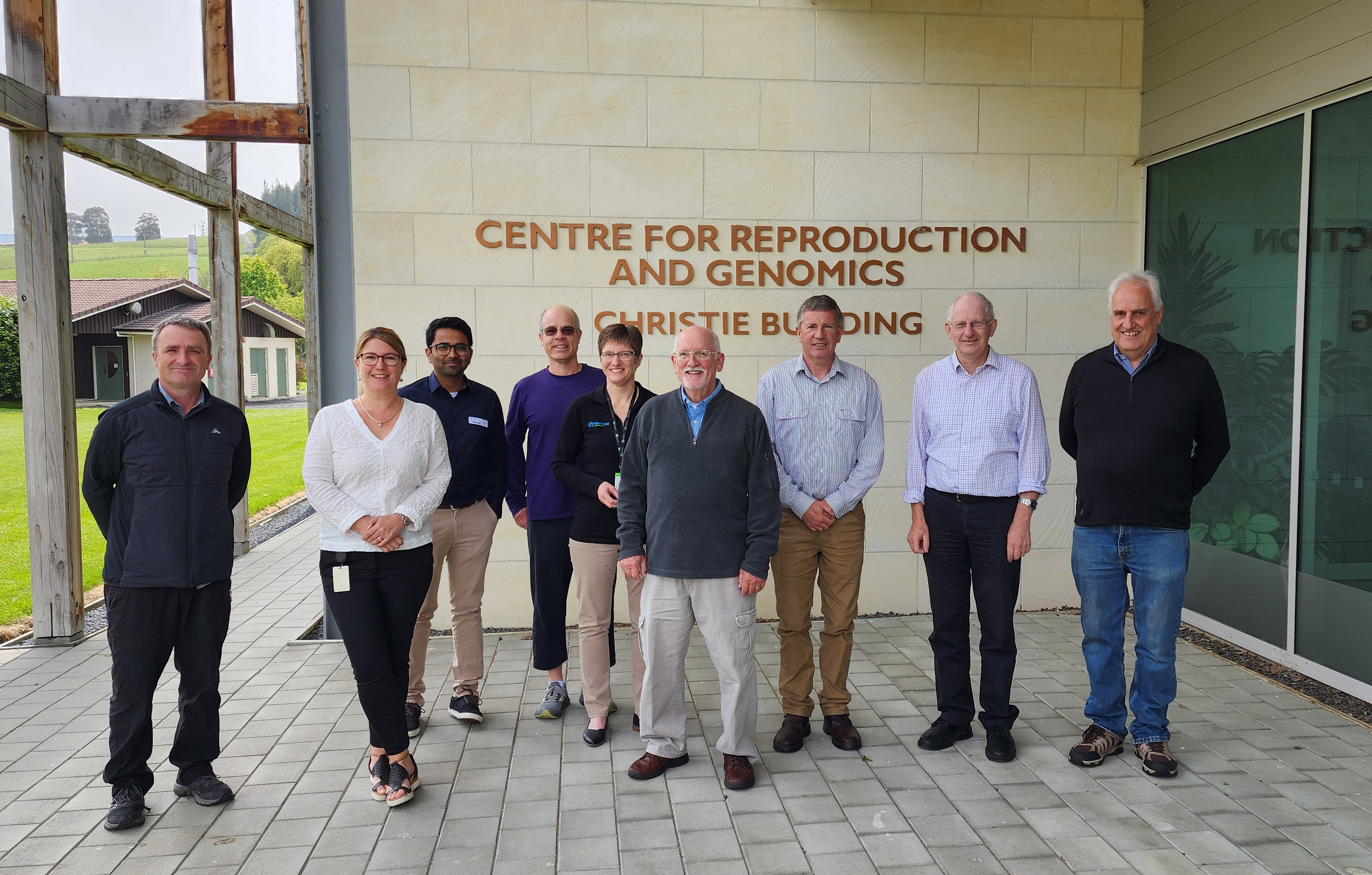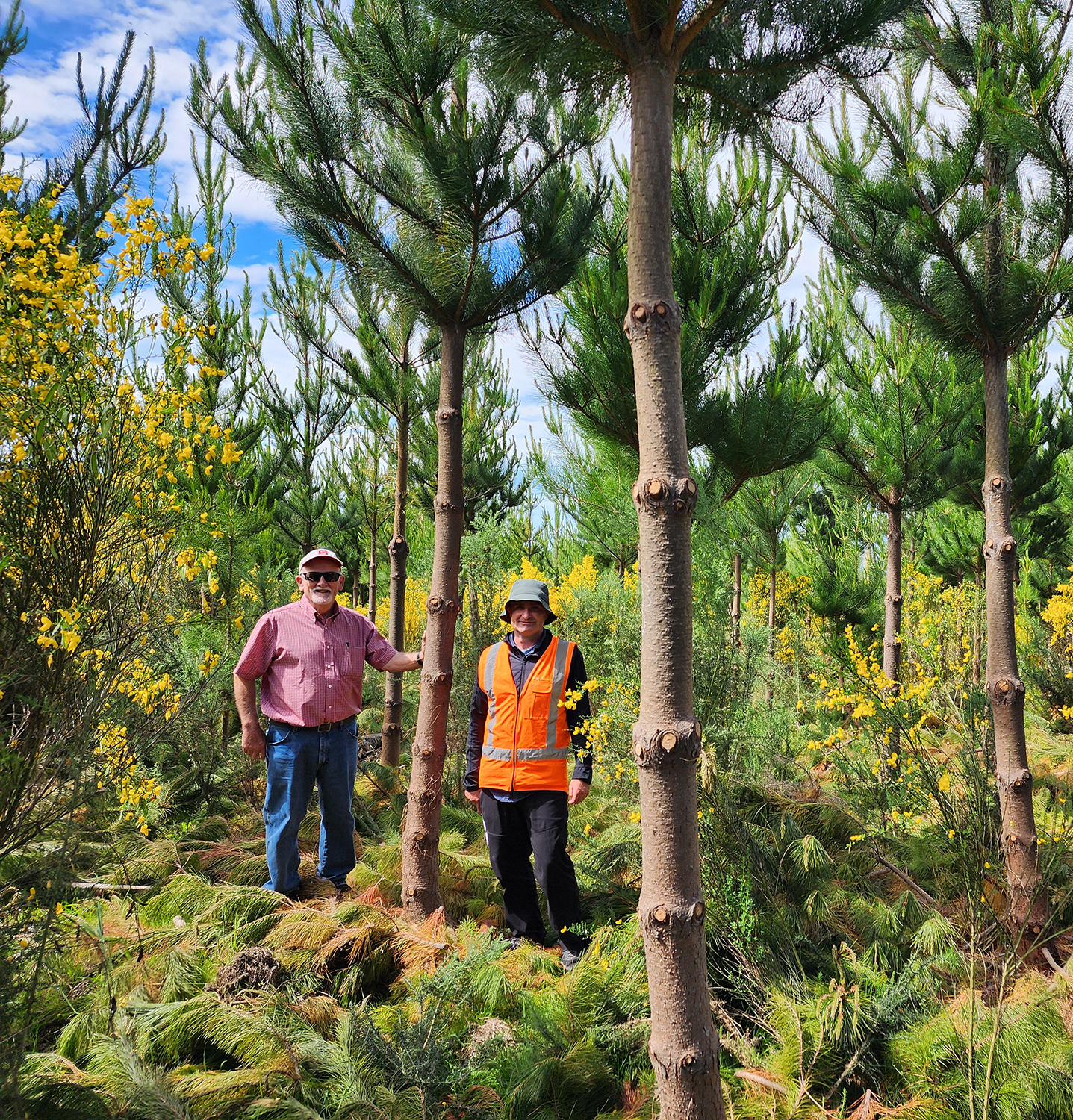
Pictured above from left to right are: Mark Paget, Rayna Anderson, Sai Aroiju, Rudiger Browning, Shannon Clarke, Steve McKeand, Darrell O'Brien, Ken Dodds, and John McEwan at AgResearch's Invermay Campus for Agricultural Research in Dunedin.
Professor McKeand’s work in forest genetics during the past 50 years has been instrumental in advancing commercial pine breeding in the Southeastern United States, especially through genetic improvements in Pinus taeda, commonly known as loblolly pine. Professor McKeand’s research in developing efficient breeding strategies, seed orchard management, and deployment systems have significantly accelerated the planting of improved genetics in the southern US. Recent successes with genomic selection in the NCSU program should take this gain to even higher levels.
Professor McKeand has been a member of RPBC’s technical advisory group for a year and is using the visit to New Zealand to continue to develop his understanding of the similarities and differences between the NC State Cooperative Tree Improvement Programme, known as CTIP (the largest forest tree planting initiative in the world) and the work that the RPBC undertakes.
Each year more than 400,000 hectares of trees are planted using genetics developed through CTIP. Professor McKeand’s efforts have focused on enhancing growth rates, stem form, disease resistance, and wood quality, providing valuable insights for RPBC’s breeding programmes.
Professor McKeand attributes much of CTIP’s success to the close collaboration between NC State, landowners, and private industry partners. He can see a lot of alignment in terms of the objectives of CTIP and RPBC.
“Looking at the mission statement and what we do, CTIP does essentially the same thing as RPBC, although we go about it differently,” says Professor McKeand. “The objectives, the goals, and what we try to accomplish are very similar.”
Professor McKeand says that he has been particularly struck by the similarities in the journey of tree breeding in the two countries over the past 70 years.
“When we started off seventy years ago, it was a traditional tree breeding programme, making selections and doing tree breeding using the state of the art at that time. We’ve evolved and are now doing much more advanced breeding rather than just going out and doing random crossing, and testing trees in the field in a less than efficient manner.

“Efficiencies that have developed with very tidy experimental designs are now happening in the field with much more precise breeding and testing efforts. That’s really changed a lot. For example with genomic selection...I could almost take the documents we have in our programme and scratch out loblolly pine and write in radiata pine and you wouldn’t know the difference. It’s uncanny the similarities between them and how it’s advanced.
“Although foresters have rarely been at the cutting edge of genetics and biotechnology, we use modern tools that will help us make the most genetic gain in our programme.”Professor McKeand says he is looking forward to seeing the latest progress in Pinus radiata’s development. “It’s one thing reading things on a screen as opposed to getting out in the field and seeing it. I’m really looking forward to seeing how it’s evolved and progressed. I think I will be impressed by what I’ll see.”
RPBC’s General Manager Darrell O’Brien says that Professor McKeand’s insights on climate adaptation and sustainable forestry practices align closely with RPBC’s objectives, especially as they pertain to New Zealand’s unique environmental conditions.
“We are delighted to host Professor McKeand and to continue to deepen our collaboration with him as a leading expert in forest genetics.”